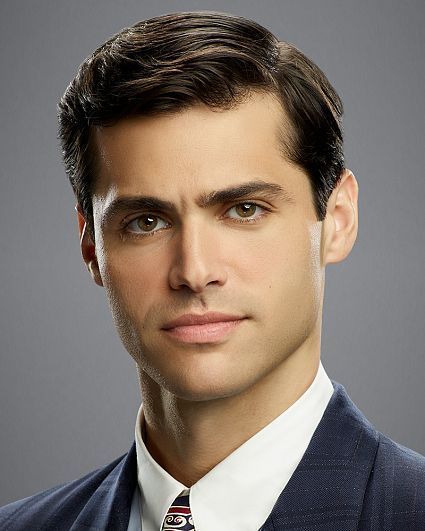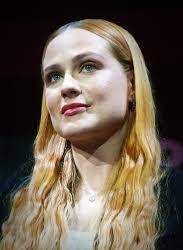#varina davis
Text
Antebellum Miscellaneous Casting 2/?
Before i continue i feel like it needs to be said that i actually dont know what any of these peoples acting styles are like, so this is 90% vibes 7% faceclaim and 3% concentration of will, so:
Matthew Daddario as Alexander Hamilton Jr.

Rebecca Hall as Sarah Polk

Emily Blunt as Lucretia Clay

Evan Rachel Wood as Margaret Eaton

Natalie Dormer as Floride Calhoun

Ben Barnes as Galusha Grow

Adam Driver as Roger B. Taney

Tom Cruise as John J. Crittenden

Luke Evans as Lawrence Keitts

Benedict Cumberbatch as Jefferson Davis

Sophie Nelisse as Elizabeth Cady Stanton

Jennifer Lawrence as Varina Davis

Chris Pratt as Horace Greeley

Jared Padalecki as Anson Burlingame

and
Mitt Romney as Franklin Pierce

#franklin pierce#anson burlingame#horace greeley#varina davis#elizabeth cady stanton#jefferson davis#lawrence keitts#john j crittenden#roger taney#galusha grow#floride calhoun#margaret eaton#lucretia clay#sarah polk#alexander hamilton jr#fancast
2 notes
·
View notes
Text
Christmas 1864, PART 1: A "Starvation" Christmas in Richmond. A Civil War Christmas
Christmas 1864. Richmond. Christmas is traditionally a celebration of full of abundance and cheer; but as Charles Dickens pointed out in his famous Yuletide tale, for many it can also be a time of want and need and hunger.
Christmas 1864. Richmond. Christmas is traditionally a celebration of abundance and cheer; but as Charles Dickens pointed out in his famous Yuletide tale, for many it can also be a time of want, need and hunger.
The South had seceded to much jubilation and overweening confidence—some would say arrogance. They would lick the Yankees in a few months it was boasted, and then the Confederacy…

View On WordPress
0 notes
Text
i learned that Varina Davis, the First Lady of the Confederate States of America, was personally opposed to slavery and doubted the Confederacy could ever succeed. After her husband’s death, she moved to New York City and wrote that “the right side had won the Civil War.” (x)

271 notes
·
View notes
Text

Wedding photograph of Jefferson Davis and Varina Howell, 1845
Jefferson F. Davis was an American politician who served as the first and only president of the Confederate States from 1861 to 1865. Jefferson Davis and Varina Howell had a total of six children.
#i recently visited the first white house of the confederacy in alabama#historical photograph#black and white photography#photograph#photography#american history#american#history#the first white house of the confederacy#president of the confederacy#confederate#confederacy
32 notes
·
View notes
Text
HISTORY THAT SHOULDN'T BE FORGOTTEN.
Jefferson Davis was never tried for treason. He was imprisoned for 2 years without a trial, however...
The post-war Jefferson Davis: The famous trial that never was.
By Bill Ward
When the War Between the States ended, the victorious Northerners viewed Jefferson Davis, as the former President of the Confederate States of America, much differently than others who had served the Confederacy.
For example, when Robert E. Lee surrendered to U.S. Grant at Appomattox Court House, the meeting between the two generals was amicable. Lee was received and treated with courtesy as a senior officer. The terms were so apparently lenient, with Grant conceding to Lee’s requests on behalf of his soldiers, the surrender was referred to as “a gentleman’s agreement.”
However, even after signing a loyalty oath, Lee and other former Confederate Army officers and members of the CSA government were later disenfranchised and treated as second-class citizens. But in the eyes of the northern public, Jefferson Davis was set apart for still a different kind of treatment.
On May 10, 1865, about a mile from the town of Irwinville, Georgia, Federal troops captured Davis. With his arrest on that spring morning, his government ceased to exist. His wife, Varina, and their children were sent to Savannah, where she was kept under virtual house arrest and forbidden to leave the city. Because the soldiers, carpetbaggers and Union supporters treated the Davis children so badly, Varina arranged for them to go to Canada along with her mother.
Davis had been taken back to Virginia and imprisoned in Fort Monroe, where he would stay for the next two years. At first, he was bound in leg irons. Guards watched him around the clock but were not permitted to speak to him. He was allowed no visitors; a light burned in his cell day and night; and his only reading material was a Bible. His treatment was a clear violation of the Bill of Rights.
Many Northern Congressmen and newspapers were nothing short of vicious in their public attacks of Davis. They wanted to see him tried for treason and hanged. In one article, and in one very long sentence, the New York Times referred to Davis by every insulting comment and offensive name that was fit to print. Rhetoric far outran legal reasoning.
But if Davis was in an unusual legal predicament, so was the United States government. The dilemma faced by Washington was how to handle the Davis case. The government under Lincoln had created its own major obstacles by spending four years proclaiming that secessionists were “traitors and conspirators.” The U.S. military had silenced opposition to the administration by closing down newspapers that dared challenge the party line or to make the slightest suggestion that secession might be legal. Thousands of Northerners had been jailed for exercising their First Amendment rights, and those thousands had friends with long memories in the Northern bar.
Northern lawyers were angry for having their clients locked in prison with no civil rights as guaranteed by the Constitution; having civilians tried by military courts for non-existent crimes; having a government that ignored the Supreme Court, setting itself above the constitutional plan of checks and balances. They didn’t like having to beg the president for justice for clients convicted by phony courts-martial or locked up for long periods without any trial. Under Lincoln, the U.S. government had become tyrannical, and certainly anything but a free and constitutional society.
The best lawyers of the day were willing to volunteer to defend Jefferson Davis, because they were angry at the way Lincoln’s government had trampled the Bill of Rights and the Constitution for four years. Even those who didn’t believe in secession were repulsed by the conduct of the Republican administration and the U.S. military.
Charles O’Connor of New York, one of the most famous trial lawyers of the era and a man of great stature in the legal profession, volunteered to be Davis’s counsel. Salmon P. Chase, Chief Justice of the Supreme Court, would be the trial judge.
But interesting things began to happen, and the government’s dilemma became even worse. University of Virginia Law Professor, Albert Bledsoe, published a book, “Is Davis a Traitor?” Bledsoe methodically took apart the case against secession, delivering a solid blow to the prosecutors and dampening their zeal to try Davis. Prosecutors actually began to look for a way to avoid trying him without vindicating the South.
Then another method was decided on for prosecution. The attorney general would bring in outside, independent counsel, as we have seen in modern times, such as in Watergate or the Clinton scandals. The government needed someone of great standing in the legal community to be the lead prosecutor. It chose John J. Clifford. But after reviewing the case, Clifford withdrew citing “grave doubts” about the validity of the case. The government could “end up having fought a successful war, only to have it declared unlawful by a Virginia jury,” where Davis’s “crime” was alleged to have been committed.
President Johnson, Lincoln’s successor, thought the easiest way out would be to pardon Davis, as he had pardoned many other Confederates. But Davis refused, saying, “To ask for a pardon would be a confession of guilt.” He wanted a trial to have the issue of secession decided by a court of law — where it should have been decided to begin with — instead of on battlefields. Most Southerners wanted the same.
Northerners either forgot or were unaware of a great secessionist tradition in America. Southerners were not alone in their view that each state had the right to determine its own destiny in the Union. The procedure for joining the Union also applied to withdrawing from the Union.
That thought harkens back to an editorial by the Cincinnati (Ohio) Daily Inquirer, in the summer of 1861, after the “traitor” label was let loose by the North: “The Republican papers are great on treason. . . . It is treason to circulate petitions for a compromise or peaceful readjustment of our national troubles . . . to question the constitutional powers of the President to increase the standing army without authority of law . . . to object to squads of military visiting private houses, and to make search and seizures. . . to question the infallibility of the President, and treason not to concur with him. . . It is treason to talk of hard times; to say that the war might have been avoided. It is treason to be truthful and faithful to the Constitution.”
A year after John Clifford withdrew, the government appointed another special counsel, Richard Dana of Boston, who had written the novel, “Two Years Before the Mast.” But after reviewing the evidence, he agreed with Clifford; the case was a loser. Dana argued that “a conviction will settle nothing in law or national practice not now settled…as a rule of law by war.” Dana observed that the right to secede from the Union had not been settled by civilized means but by military power and the destruction of much life and property in the South. The North should accept its uncivilized victory, however dirty its hands might be, and not expose the fruits of its carnage to scrutiny by a peaceful court of law.
Now, over two years after Davis’s imprisonment and grand jury indictments for treason, the stage was set for the great public trial of the century. Davis had been released from prison on a $100,000 bond, supported by none other than Horace Greeley, the leading abolitionist writer in the North and a former Lincoln supporter. Greeley and a host of others were outraged at the treatment Davis had received, being locked up in a dungeon for more than two years with no speedy trial.
Since two famous special counsels had told the government its case was a loser, finally, none other than the Chief Justice, in a quirk of Constitutional manipulation, devised an idea to avoid a trial without vindicating the South. His amazing solution was little short of genius.
The Fourteenth Amendment had been adopted, which provided that anyone who had engaged in insurrection against the United States and had at one time taken an oath of allegiance (which Davis had done as a U.S. Senator) could not hold public office. The Bill of Rights prevents double jeopardy, so Davis, who had already been punished once by the Fourteenth Amendment in not being permitted to hold public office, couldn't be tried and punished again for treason.
Chief Justice Salmon P. Chase secretly passed along his clever argument to Davis’s counsel, Charles O’Connor, who then made the motion to dismiss. The Court took the motion under consideration, passing the matter on to the Supreme Court for determination.
In late December 1867 while the motion was pending, President Johnson granted amnesty to everyone in the South, including Davis. But the Davis case was still on the docket. In February 1868, at a dinner party attended by the Chief Justice and a government attorney, they agreed that on the following day a motion for non-prosecution would be made that would dismiss the case. A guest overheard the conversation and reported what was on the minds of most Southerners: “I did not consider that he [Davis] was any more guilty of treason than I was, and that a trial should be insisted upon, which could properly only result in a complete vindication of our cause, and of the action of the many thousands who had fought and of the many thousands who had died for what they felt to be right.”
And so, the case of United States versus Jefferson Davis came to its end — a case that was to be the trial of the century, a great state trial, perhaps the most significant trial in the history of the nation — that never was.
8 notes
·
View notes
Note
queen rosalyn was mentioned in a recent post, so: can you give us any lore about her, her family, and how they managed to marry into sunderland royalty? if louisa had ended up queen, do you think she would have resisted and opposed rosalyn's politics once she reached majority?
This is actually a very helpful question, anon! Thank you for not getting mad since I took forever to answer <3
Uh, under the cut is a shit ton about the American Civil War and that means talk about slavery, so read at your own risk.
So, Rosalyn as I've made it clear was a Daughter of the Confederacy, like, a literal OG one a la Varina Anne Davis, born and raised on a plantation in South Carolina during a very contentious time. She had a very charmed childhood (like completely obvious to the horrors of slavery and raised as a true Southern Belle), but everything she loved became threatened by the inevitable Civil War and what she saw as the threat of Northern aggression.
Rosalyn in my head has always been similar to Scarlett O'Hara (Vivian Leigh's character from Gone With the Wind), she was absolutely stunning, at least appearance-wise. Sunderland and the USA are right next to each other, so it was typical for Sunderlandian royals to venture into the USA for both political and social reasons. I'd like to imagine that Rosalyn met her future husband Louis at a ball in Maryland.
Now, Louis IV, as I've mentioned before, assumed the throne at 15 years old and was of a rather weak constitution. Due to his poor health, he was used to being babied and pretty much always got what he wanted. So, giving this kid basically absolute power was bound to cause issues. For Louis, it was love at first sight and Rosalyn's family, realizing Louis's position, urged her to pursue him. They had a whirlwind Romeo & Juliet-style romance, heavily manipulated by the Southern planter class, who correctly predicted international opinion turning against slavery, and wanted to ensure Sunderland would remain at the very least neutral during a Civil War. There was no better way to promote their interests than a puppet Confederate queen who had a king wrapped around her fingers.
Basically everyone in Louis's inner circle begged him not to marry Rosalyn: Parliament, family, friends, etc. But Louis married her anyway, Sunderland lacked the proper checks and balances to prevent it (they'd fix this later). People were outraged and opinions about Queen Rosalyn ranged from dismissive to downright murderous. In Sunderland, she became a scapegoat for the coming war in America. The more things worsened in America, the more she was resented. The whole nation held its breath when she became pregnant in 1859, and rejoiced when the child turned out to be a girl.
Sunderland really lucked out with Louis's early death. For one thing, he died before the Civil War started and for another, he died before he could father a son with Rosalyn. Both prevented Rosalyn from really doing any damage or having any institutional power to promote Confederate interests. She had been Queen for just under three years. She fled Sunderland with her infant daughter mere weeks after Louis died, fearing for her life. The new king, Louis's cousin George, was fully intending to make an example of Rosalyn and Louisa if they came in the way of his accession, so it was a smart move.
However, the home Rosalyn returned to wasn't the same. Several of her brothers died during the Civil War, and Big Dick William Tecumseh Sherman marched his soldiers straight across South Carolina, destroying any plantations in his path. Suffice it to say, Rosalyn kind of lost it after that, she never recovered and became a recluse until her death.
As for Louisa, she was referred to by Southerners as the Queen of Sunderland for most of her life, but it was more sarcastically than with any real deference. She never attempted to take back her birthright and actually signalled her loyalty to King George several times. George, as a result, left her to live her life in the USA. The cousins were even on friendly terms until Louisa's death.
Lousia was still raised in the South and her mother probably spoon-fed her a wrapped education based on the pro-South Lost Cause narrative (Here's an amazing video about what that means, but it's basically the myth that the Civil War was not centred on slavery, like, "States Rights" and all that BS), but Louisa rejected appeals to becoming a spokesperson for Neo-Confederate groups. She was a very private person and valued a life out of the spotlight.
Now, had she become queen she would have almost certainly been separated from her mother and raised by the State with George serving as regent until she reached adulthood. Rosalyn would have had little power to do anything about it. There was no chance of Louisa being a Confederate sympathizer without getting assassinated. Plus, after the Civil War, there was no Confederate States to represent anyway.
7 notes
·
View notes
Text

Varina Anne “Winnie” Davis Jefferson Davis daughter
#jefferson davis#cemetery#cemetery photography#goth aesthetic#gothic#angelcore#cemetery angel#history
4 notes
·
View notes
Text
Reading a biography on Varina Davis and how fucking insane is it that in 1776 New Jersey issued a decree saying women could vote (the only state in the whole country) but then they revoked it in 1807.
Also finding it ironic Jefferson Davis's first wife was Zachary Taylor's daughter and they were married like 3 months before she died bc at this time people said not to travel in the summer bc disease was in the air and these idiots did just that
3 notes
·
View notes
Text
Thursday edits rest In Peace to those old angels Thomas Jefferson Tiller, Mecy Tiller Perdue, John Talbot Hanks, Eleanor “Ellen” Perdue Hanks, John Perdue, Nancy Elizabeth Hanks Lincoln, Thomas Lincoln, Sarah Bush Lincoln, Elizabeth Johnston Hanks, Dennis Friend Hanks, Abraham Lincoln, Rev Henry Sparrow, Lucy Nancy Hanks Sparrow, Mary Eunice Harlan Lincoln, Thomas “Tad” Lincoln, Robert Todd Lincoln, William Wallace “Willie” Lincoln, Edward Baker “Eddie” Lincoln, Mary Ann Todd Lincoln, Powell Waits “P.W.” Ward, Mrs Vera Valentine Ward Beckwith, Warren Wallace Beckwith, Mary Harlan Lincoln “Peggy” Beckwith, Mrs Jessie Harlan Lincoln Randolph, Edward Everett Beckwith, CPT Warren W Beckwith, Robert Todd Lincoln “Bud” Beckwith, Abraham “Jack” Lincoln II, Frank Edward Johnson, Catherine Bodley “Kittie” Todd Herr, Elodie Breck Todd Dawson, 1LT Robert John Randolph Jr., Sophia Hanks Legrand-Lynch, Sarah “Sally” Hanks, John D Johnston, Harriet Ann Hanks Chapman, John Perdue, Captain Abraham Lincoln, Elbridge Gerry, Catherine Gerry Austin, Ann Gerry, Thomas Russell Gerry, Elbridge Thomas Gerry, Thomas Mifflin, Sarah Morris Mifflin, LT John Adams, Jonas Russell Adams, William Byrd II, Jane Byrd Page, COL William Byrd III, Maria Taylor Byrd Carter, Maria Taylor Byrd, Col Landon Carter, Carolianna Carter Hall, Frances Parke Custis Winch Dansie, Frances “Fanny” Parke Custis, Lucy Parke Byrd, Evelyn Byrd, Anne Byrd Carter, William Evelyn Byrd I, Abigail Smith Adams, John Adams, John Walker, Joseph Evan Davis, Samuel Emory Davis, William Howell Davis, Varina Anne Banks Howell Davis, Varina Anne “Winnie” Davis, Margaret Mackall “Peggy” Smith Taylor, Sarah Knox “Knoxie” Taylor Davis, Baby Monster, Aethel McMullen, Laura C Hedgecoke, Little Eva Hedgecoke, Gracie Perry Watson, Wales J. “W J” Watson, Margaret Frances Waterman Watson, Inez Briggs, Anna Glinberg, MANIA HALEF, Louis XVII, Lois Janes, Madame Royale, Marie Thérèse of France (1667–1672), Sophia Hanks Legrand-Lynch, Nancy Lynch Davison, John Potter Davison, Omie Elizabeth Pruitt Davison, James Anderson Davison, Julia Josephine “Jessie” Harlan, John Walker, and rest in peace to Rev. James Cleveland behind the song God is










1 note
·
View note
Link
#maga #civilwar #biden #election #traitortrump #gaza #palestine #biden #racism
0 notes
Text
Remembering an American President
Help Dixie Defeat Big-Tech Censorship! Spread the Word! Like, Share, Re-Post, and Subscribe! There’s a lot more to see at our main page, Dixie Drudge!
From the Abbeville Institute:
From Varina Davis, Jefferson Davis: A Memoir (1890)
Mr. Davis’s apparent feebleness had been accompanied by enough increase in weight to encourage my hopes of his health improving. He never stooped, but retained his…

View On WordPress
0 notes
Text

why is this so cute?
2 notes
·
View notes
Text
To Find a Home: Book 1 1861
CHAPTER 3: JEFFERSON
Brierfield Plantation. Davis Bend. Mississippi. 1861
Jefferson is named President.
Tall, thin, blessed sun kissed skin, Varina was often referred behind back or closed door as daughter of a Mulatto whore or Indian squaw, a mistrusted half breed homing south, but roots deep in the north. She heard the whispers, caught the side eye stare, but having been taught well and fair…

View On WordPress
0 notes
Text
Tag 9 people (or less) you want to get to know better
Thank you for tagging me @ena-reil-s-reblogs :)
✨ Three Ships: uhhhhhhhhhhhhhhhhhhhhhhhh. Inuyasha and Kagome, Jimmy and Kim from Better Call Saul, and uhhhhhhh honestly kind of a fan of Joseph x Caesar x Suzie Q from JoJo's.
✨ First Ship Ever: I honest to God can't remember, but if I had to take a guess probably Inuyasha and Kagome
✨ Last Song: Rainy Day in Berlin by Sarah Crean. I would like to thank tiktok user thebun91.3 for introducing me to so many new artists, Sarah included. He also has a Spotify playlist with the songs he plays/talks about, so if you're looking for any new music 10/10 would rec checking it out :)
✨ Last Movie: The Mario Movie
✨ Currently Reading: Civil War Wives by Carol Berkin. It's about the lives of Angelina Grimes Weld, Varina Davis, and Julia Grant
✨ Currently Watching: currently rewatching JoJo's Bizarre Adventure (hence the recent jjba content spam), I'm on part 4. Also starting X-Files for the third or fourth time, I keep starting it and then getting distracted by other shows, which leads to abandoning X-Files…… and then some time later I remember that I was trying to watch X-Files and start it over again. Let's hope I make it through the entire series this time lol
✨ Currently Consuming: McDonald's chicken nuggets ✌️
✨ Currently Craving: I want maque choux from Yats so badly, it isn't even funny.
Tagging w/ 0 pressure- @orlamccools and @tolerateit
1 note
·
View note
Text
Whoa, Davis manservant and Varina’s personal maid fled to Washington and shared sensitive information. Things definitely aren’t looking good for the Confederacy. Someone even tried to burn down the Confederate White House by starting a fire in the basement. Two more slaves escaped and the mansion was robbed all in the same night. Mary Jane still continued to spy.
0 notes
Text

Jefferson Davis | Biography, Quotes, Civil War, Death, & Facts
Hudson Strode
8–10 minutes
Top Questions
Where was Jefferson Davis educated?
Who was Jefferson Davis?
What did Jefferson Davis do?
Jefferson Davis, in full Jefferson Finis Davis, (born June 3, 1808, Christian county, Kentucky, U.S.—died December 6, 1889, New Orleans, Louisiana), president of the Confederate States of America throughout its existence during the American Civil War (1861–65). After the war he was imprisoned for two years and indicted for treason but was never tried.
Early life and career
Jefferson Davis was the 10th and last child of Samuel Emory Davis, a Georgia-born planter of Welsh ancestry who had fought in the American Revolution. When Jefferson Davis, who was named for Thomas Jefferson, was age three, his family settled on a plantation called Rosemont in Woodville, Mississippi. At age seven he was sent for three years to a Dominican boys’ school in Kentucky, and at age 13 he entered Transylvania College, Lexington, Kentucky. He later spent four years at the United States Military Academy at West Point, graduating 23rd in a class of 33 in 1828. At both Transylvania and West Point, Davis’s best friend was the future Confederate general Albert Sidney Johnston. In the class behind Davis at West Point were two other cadets who would become prominent Confederate generals, Robert E. Lee and Joseph E. Johnston.
Davis served as a lieutenant in the Wisconsin Territory and afterward in the Black Hawk War under the colonel and future president Zachary Taylor, whose daughter Sarah Knox would become Davis’s wife. According to a contemporary description, Davis in his mid-20s was “handsome, witty, sportful, and altogether captivating.” After being posted in Arkansas for two years, Davis resigned his commission in 1835, married Knox, and became a planter near Vicksburg, Mississippi, on land given to him by his wealthy eldest brother, Joseph. Within three months his bride died of malarial fever. Grief-stricken, Davis stayed in virtual seclusion for seven years, creating a plantation out of a wilderness and reading prodigiously in constitutional law and world literature.
In 1845 Davis, a Democrat, was elected to the U.S. House of Representatives and married Varina Howell, a Natchez, Mississippi, aristocrat who was 18 years his junior and the granddaughter of a former governor of New Jersey. In 1846 Davis resigned his seat in Congress to serve in the Mexican-American War as a colonel in command of the First Mississippi volunteers. He became a national hero for winning the Battle of Buena Vista (1847) with tactics that won plaudits even in the European press. After returning to Mississippi severely wounded, he entered the Senate and soon became chairman of the Military Affairs Committee. In 1851 Davis ran unsuccessfully for governor of Mississippi. Pres. Franklin Pierce made him secretary of war in 1853. Davis enlarged the army, strengthened coastal defenses, and directed three surveys for railroads to the Pacific. He was also a forceful advocate for what became the Gadsden Purchase. Britannica QuizAmerican Civil War Quiz
In 1857, after Pierce left office, Davis returned to the Senate. During the period of mounting intersectional strife, Davis spoke widely in both North and South, urging harmony between the sections. In the 1860 presidential election, Davis opposed the candidate of Northern Democrats Stephen A. Douglas, a champion of popular sovereignty, and joined Southern Democrats in supporting John C. Breckinridge, who demanded federal government protection for slave holdings in the territories and ran on a separate ticket. When South Carolina withdrew from the Union in December 1860, Davis still opposed secession, though he believed that the Constitution gave a state the right to withdraw from the original compact of states. He was among those who believed that the newly elected president, Abraham Lincoln, would coerce the South and that the result would be disastrous.
President of the Confederacy
On January 21, 1861, 12 days after Mississippi seceded, Davis made a moving farewell speech in the Senate and pleaded eloquently for peace. Before he reached his Brierfield plantation, he was commissioned a major general to head Mississippi’s armed forces and prepare its defense, but within two weeks the Confederate Convention in Montgomery, Alabama, chose him as provisional president of the Confederacy. Davis was surprised at the news of his election. Unlike many Southern leaders, he had expected war and hoped to become the commander in chief of the Southern armies. In his inaugural address on February 18, 1861, Davis said, in part,
His first act was to send a peace commission to Washington, D.C., to prevent an armed conflict. Lincoln refused to see his emissaries and the next month decided to send armed ships to Charleston, South Carolina, to resupply the beleaguered Union garrison at Fort Sumter. Davis reluctantly ordered the bombardment of the fort (April 12–13), which marked the beginning of the American Civil War. Two days later Lincoln called for 75,000 volunteers, a move that brought about the secession of Virginia and three other states from the Union.
Davis faced a dire crisis. A president without precedent, he had to mold a brand-new nation in the midst of a war. With only one-fourth the white population of the Northern states, with a small fraction of the North’s manufacturing capacity, and with inferior railroads, no navy, no powder mills, no shipyard, and an appalling lack of arms and equipment, the South was in poor condition to withstand invasion. But at Bull Run (Manassas, Virginia) on July 21, 1861, the Confederates routed Union forces. In the meantime, with makeshift materials, Davis created factories for producing powder, cannon, side arms, and quartermaster stores. In restored naval yards gunboats were constructed, and the South’s inadequate railroads and rolling stock were patched up repeatedly. Davis sent agents to Europe to buy arms and ammunition, and he dispatched representatives to try to secure recognition from England and France.
Davis made the inspired choice of Robert E. Lee as commander of the Army of Northern Virginia in June 1862. While Davis’s military judgment was occasionally at fault, he wisely gave Lee wide scope in conducting the war over the next three years. Perhaps Davis’s most serious mistake as commander in chief was the excessive importance he attached to defending the Confederate capital at Richmond, Virginia, at the expense of operations farther west, including the defense of the key Confederate fortress at Vicksburg, Mississippi.
Davis had innumerable troubles during his presidency, including a squabbling Congress, a dissident vice president, Alexander H. Stephens, and the constant opposition of extreme states’ rights advocates, such as North Carolina Gov. Zebulon Vance, who objected vigorously to the conscription law he had enacted over much opposition in 1862. But despite a gradually worsening military situation, unrelieved internal political tensions, a continuing lack of manpower and armament, and skyrocketing inflation, he remained resolute in his determination to carry on the war, and Lee remained both his most valuable field commander and his most loyal personal supporter. Even during the siege of Petersburg, when Lee’s army was immobilized and starving, Davis asserted to an audience in Richmond on February 6
0 notes